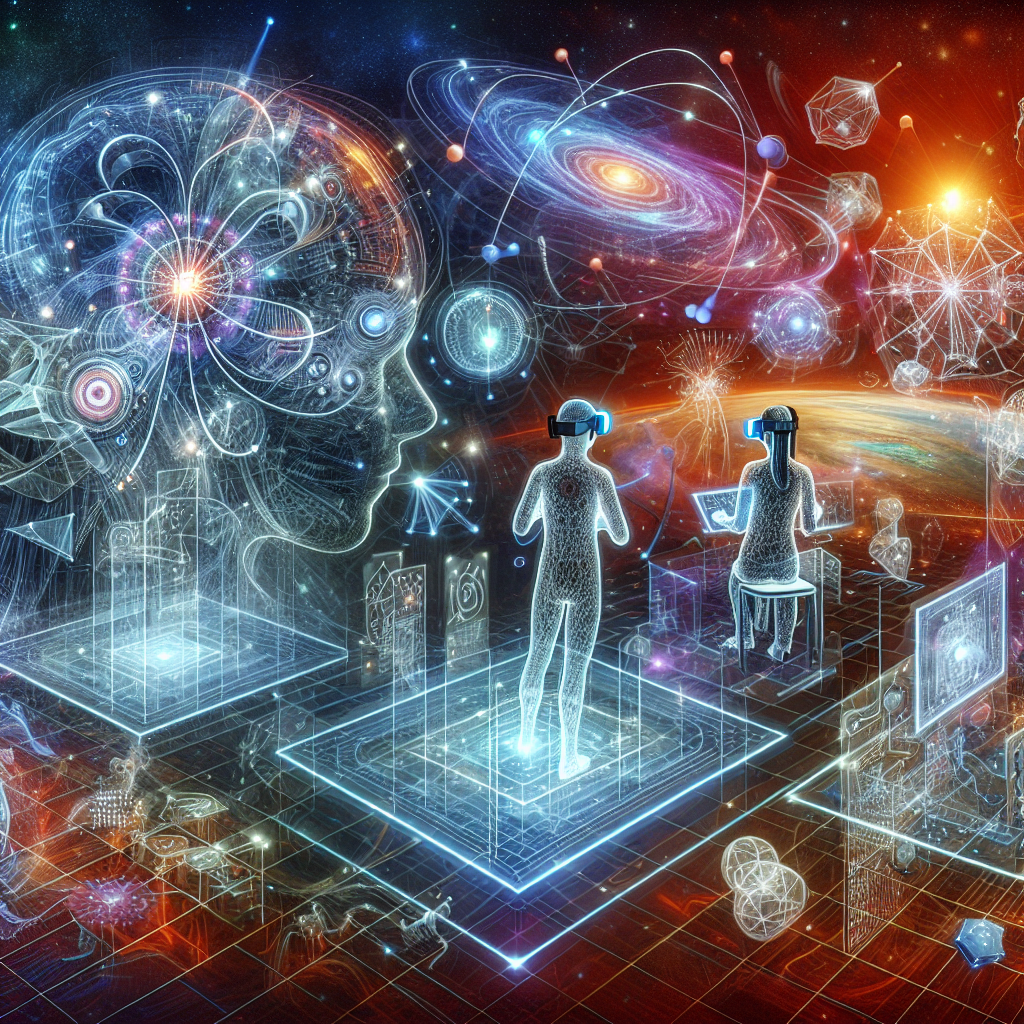The Role of AI Tools in Virtual Reality
Virtual reality (VR) technology has rapidly evolved in recent years, allowing users to immerse themselves in a digital world like never before. From gaming to healthcare, VR has the potential to revolutionize countless industries. One key factor that has contributed to the growth of VR technology is the integration of artificial intelligence (AI) tools. AI has played a significant role in enhancing the capabilities of VR, making it more immersive, realistic, and interactive. In this article, we will explore the role of AI tools in virtual reality and how they are shaping the future of this technology.
AI-Powered Personalization
One of the key ways AI tools are enhancing virtual reality is through personalization. AI algorithms can analyze users’ behavior and preferences to create personalized experiences in VR. For example, in a gaming scenario, AI can track a player’s movements and reactions to adjust the game difficulty or storyline accordingly. This level of personalization makes the VR experience more engaging and immersive for users.
AI-powered personalization is also being used in other industries, such as healthcare and education. In healthcare, VR simulations can be tailored to a patient’s specific needs and conditions, providing more effective and personalized treatment options. In education, AI can track students’ progress and learning styles to create personalized learning experiences in virtual classrooms.
Enhanced Realism and Immersion
AI tools are also being used to enhance the realism and immersion of virtual reality experiences. By using AI algorithms to simulate real-world scenarios, VR developers can create more lifelike environments and interactions. For example, AI-powered physics engines can simulate realistic movements and interactions between objects in a virtual world, making the experience more immersive for users.
AI can also be used to generate realistic avatars and characters in VR environments. By analyzing facial expressions, body movements, and speech patterns, AI algorithms can create virtual characters that behave and interact with users in a more human-like manner. This level of realism and interaction adds to the overall immersion of the VR experience.
Improved User Interaction
AI tools are revolutionizing the way users interact with virtual reality environments. By incorporating natural language processing (NLP) and speech recognition technology, AI can enable users to interact with VR environments using voice commands and gestures. This hands-free interaction makes the VR experience more intuitive and user-friendly.
AI-powered chatbots and virtual assistants are also being integrated into VR environments to provide users with real-time assistance and information. These virtual assistants can help users navigate virtual worlds, answer questions, and provide personalized recommendations based on user preferences. This level of interactivity enhances the overall user experience in VR.
AI tools are also being used to analyze user behavior and feedback in real-time, allowing developers to make adjustments to VR environments on the fly. By tracking user movements, gestures, and interactions, AI algorithms can adapt the VR experience to better suit the needs and preferences of users.
Future Applications of AI in Virtual Reality
The integration of AI tools in virtual reality is still in its early stages, but the possibilities are endless. As AI technology continues to advance, we can expect to see even more innovative applications of AI in VR. Some potential future applications of AI in virtual reality include:
– Enhanced emotional intelligence: AI algorithms can be used to analyze user emotions and reactions in real-time, allowing VR environments to adapt and respond to users’ emotional states. This level of emotional intelligence can create more personalized and engaging experiences in VR.
– Predictive analytics: AI tools can analyze user data and behavior to predict future actions and preferences. In VR, predictive analytics can be used to anticipate user movements and interactions, creating more seamless and immersive experiences.
– Autonomous agents: AI-powered autonomous agents can be integrated into VR environments to interact with users and provide assistance. These agents can learn and adapt to user preferences over time, creating more personalized and engaging interactions in virtual reality.
– Adaptive learning: AI algorithms can track user progress and learning patterns in VR environments to create personalized learning experiences. By adapting the content and difficulty level of VR simulations based on user performance, adaptive learning can enhance the educational value of virtual reality.
FAQs
Q: How are AI tools being used in virtual reality gaming?
A: AI tools are being used in virtual reality gaming to enhance the realism, immersion, and personalization of the gaming experience. AI algorithms can analyze player behavior and preferences to create personalized gaming experiences, adjust game difficulty, and simulate realistic interactions between characters and objects in the virtual world.
Q: How can AI enhance healthcare applications in virtual reality?
A: AI tools can enhance healthcare applications in virtual reality by providing personalized treatment options, simulating real-world medical scenarios, and tracking patient progress. AI algorithms can analyze patient data and behavior to create personalized VR simulations for medical training, therapy, and treatment.
Q: What are some potential future applications of AI in virtual reality?
A: Some potential future applications of AI in virtual reality include enhanced emotional intelligence, predictive analytics, autonomous agents, and adaptive learning. These applications can create more personalized, immersive, and engaging experiences in virtual reality.
In conclusion, AI tools are playing a crucial role in shaping the future of virtual reality technology. From enhancing realism and immersion to improving user interaction and personalization, AI is revolutionizing the way we experience virtual worlds. As AI technology continues to advance, we can expect even more innovative applications of AI in virtual reality that will further enhance the overall user experience.

